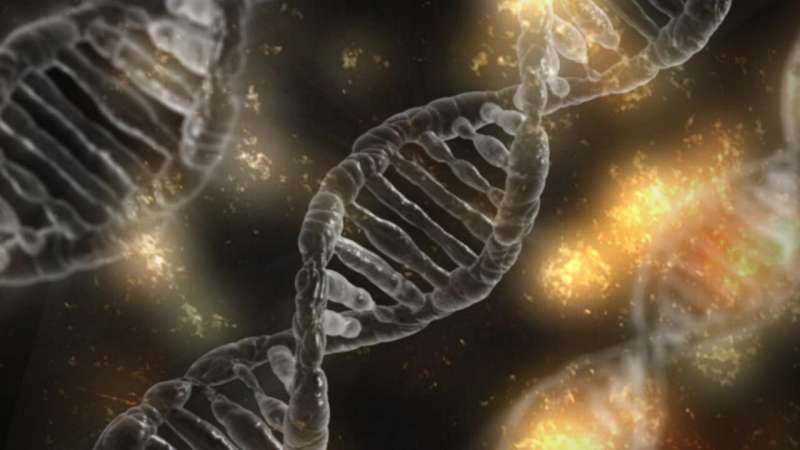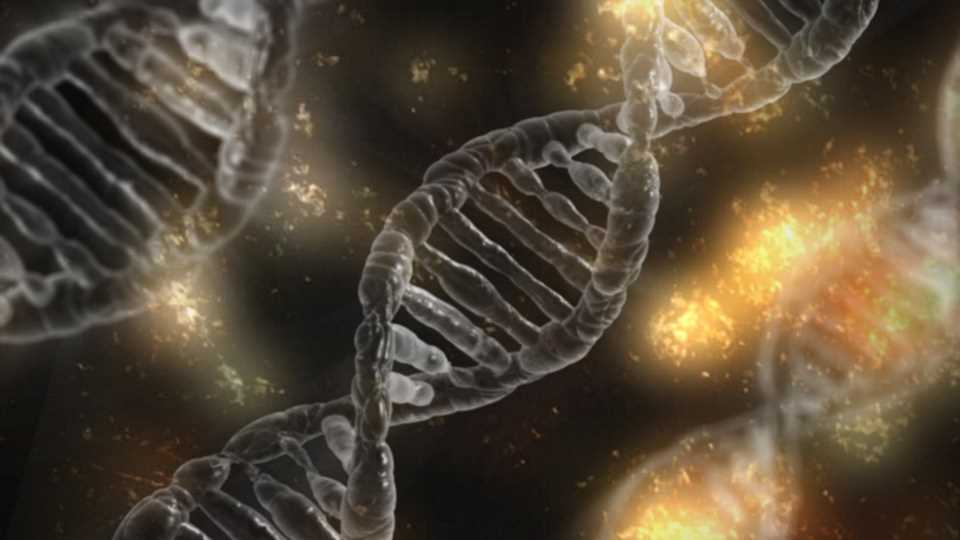
A large-scale study conducted by KU Leuven and The Francis Crick Institute shows that 21% of tumors have double mutations, in which the exact same letter is mutated in both the maternal and paternal copy of your DNA. This is an observation that was not previously taken into account when analyzing tumors but is important for future cancer research into the origin of mutations and their biological significance in the development of cancer. The study results are published in Nature Genetics.
Our DNA can be thought of as a large recipe book, written with only 4 different letters (A, C, G and T). With about 3 billion characters, you could therefore compare human DNA to about 3,000 thick cookbooks. Each time a cell divides, your entire DNA must be copied across, and it is not inconceivable that while copying across 3,000 cookbooks, a clerical error could occur—a mutation that can transform a cell into a cancer cell.
Fortunately, most cells in our bodies have two sets of cookbooks, one from our mother and one from our father. This means that all recipes can still be read easily, even if a mistake creeps into one of them. Statistically speaking, the chances are extremely small that your cells will make an error in exactly the same character in both cookbooks each time they divide. To give an example, continuing the analogy of the cookbook: “Balls” in tomato sauce first becomes “bulls” in tomato sauce in Mum’s recipe and then “bells” in the paternal version or vice versa.
Because the likelihood of letters being distorted in this way in your DNA is so small, genetic studies have assumed that this situation simply does not occur and that letters in our DNA consequently change only once. A large-scale study by KU Leuven and The Francis Crick Institute in London now shows that this assumption—at least for cancer cells—is incorrect.
Double mutations are no accident
The team examined 2,658 complete DNA sequences from 38 different types of tumors and found these double mutations in as many as 21% of cases. “Although the probability that the same letter will mutate in both the maternal and paternal copy is statistically very small, it does occur in one in five tumors studied. That number is too large to be a coincidence,” said postdoctoral researcher Jonas Demeulemeester. “We can see that in skin cancer, for example, certain pieces of DNA are much more sensitive to damage from UV light than others, explaining some double hits, without major consequences for the cells. This information is essential in the search for mutations that contribute to the formation of cancer cells and can therefore be good targets for treatments,” Demeulemeester continued.
Source: Read Full Article
